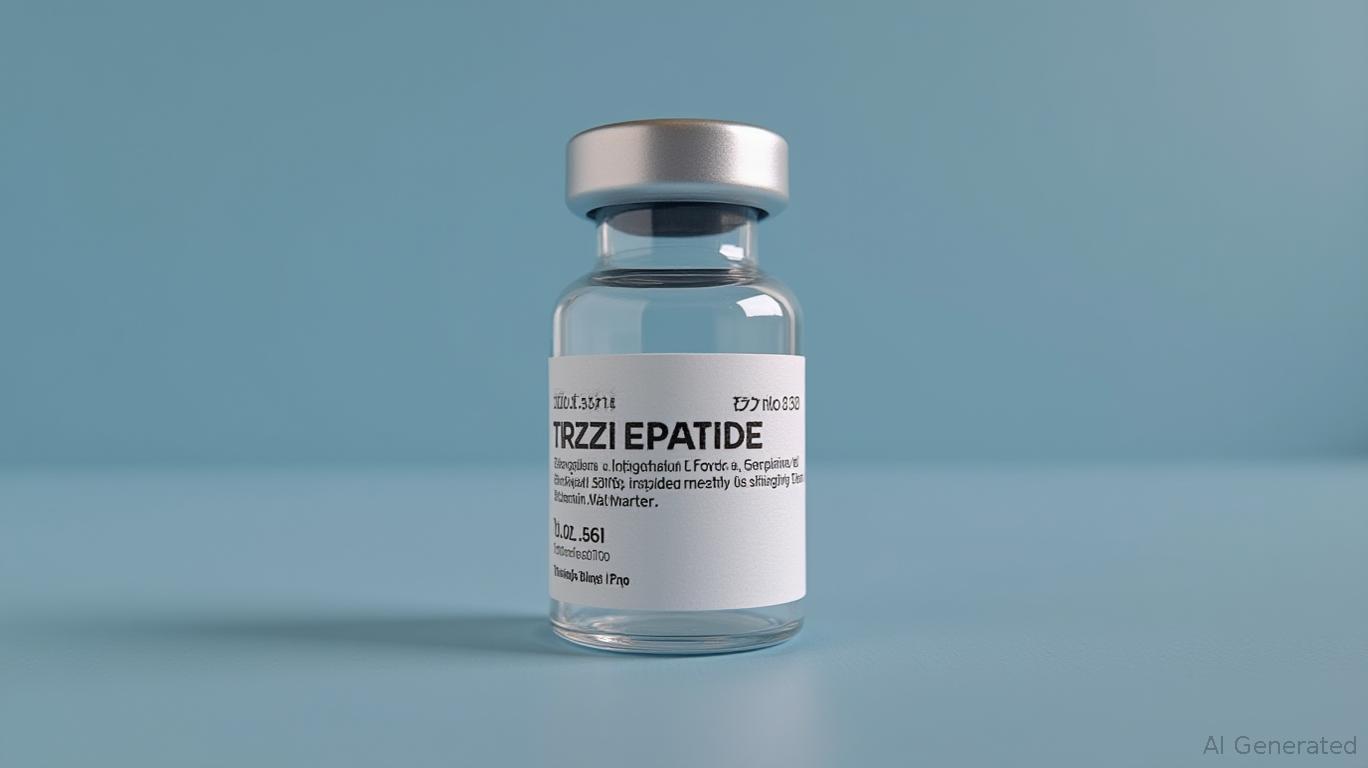Walmart and Lilly's Price Reduction Initiative Revolutionizes Access to Obesity Medications
Obesity rates among adults in the United States have declined from previous highs, leading to increased interest in weight-loss medications and driving significant growth in the pharmaceutical sector. Major pharmaceutical companies, including
In October 2025, Eli Lilly and Walmart revealed that individuals with prescriptions could obtain single-dose Zepbound vials at discounts of 50% or more off the standard price through Walmart’s 4,600 pharmacies or via home delivery beginning mid-November. This partnership marks the debut of LillyDirect, Eli Lilly’s direct-to-consumer service, within a retail pharmacy network. The initiative is designed to make Zepbound more accessible, intensifying the competition between Eli Lilly and its main rival, Novo Nordisk, in the GLP-1 market, according to CNBC.

This alliance supports the Trump administration’s broader push to lower medication costs by encouraging direct-to-consumer approaches that bypass insurance intermediaries. With this model, patients pay a set fee—$349 monthly for the initial dose and $499 for higher doses—regardless of whether they choose home delivery or pick up in-store. Jennifer Mazur, who leads LillyDirect, highlighted that this program helps overcome obstacles to managing chronic illnesses, stating, "Addressing obesity comes with significant physical, emotional, and financial challenges. Our partnership with Walmart helps ease these challenges by simplifying access to prescribed therapies," as mentioned in a
Expanding Zepbound’s reach is a key part of Eli Lilly’s plan to lead the GLP-1 market. Direct-to-consumer purchases now represent over one-third of new Zepbound prescriptions, a milestone achieved after the introduction of cash discounts in August 2024. Meanwhile, Novo Nordisk is working with CVS and Caremark to distribute its rival drug, Wegovy. As the fifth-largest pharmacy chain in the country by prescription volume, Walmart plays a pivotal role in determining how patients access these treatments, CNBC reported.
The rapid expansion of the GLP-1 market is evident in industry statistics. Prescriptions for GLP-1 analogues in the U.S. jumped 160% from 2023 to 2024, and the global market is expected to surpass $299 billion by 2033, according to a
However, there are still hurdles to overcome. Eli Lilly’s direct-to-consumer approach has not fully resolved insurance coverage gaps, and the high costs for larger doses may still be a barrier for some. Additionally, the Trump administration’s "most favored nation" policy—which would tie U.S. drug prices to those in other countries—has yet to secure pricing deals with Eli Lilly, unlike agreements already made with Pfizer and AstraZeneca, CNBC stated.
Looking forward, the rivalry between Eli Lilly and Novo Nordisk is set to escalate. Novo Nordisk recently committed $4.1 billion to boost Wegovy’s global supply, while Eli Lilly is moving its triple-hormone agonist, "Retatrutide," into clinical testing, according to the PR Newswire release. The industry is also turning its attention to combination treatments and advanced delivery methods, with companies like Sanofi and AstraZeneca developing dual GLP-1/GIP analogues for metabolic conditions.
As the obesity epidemic continues to change, so does the pharmaceutical industry. The intersection of retail partnerships, regulatory changes, and ongoing innovation is transforming how patients receive vital treatments—and how industry leaders capture billions in revenue.